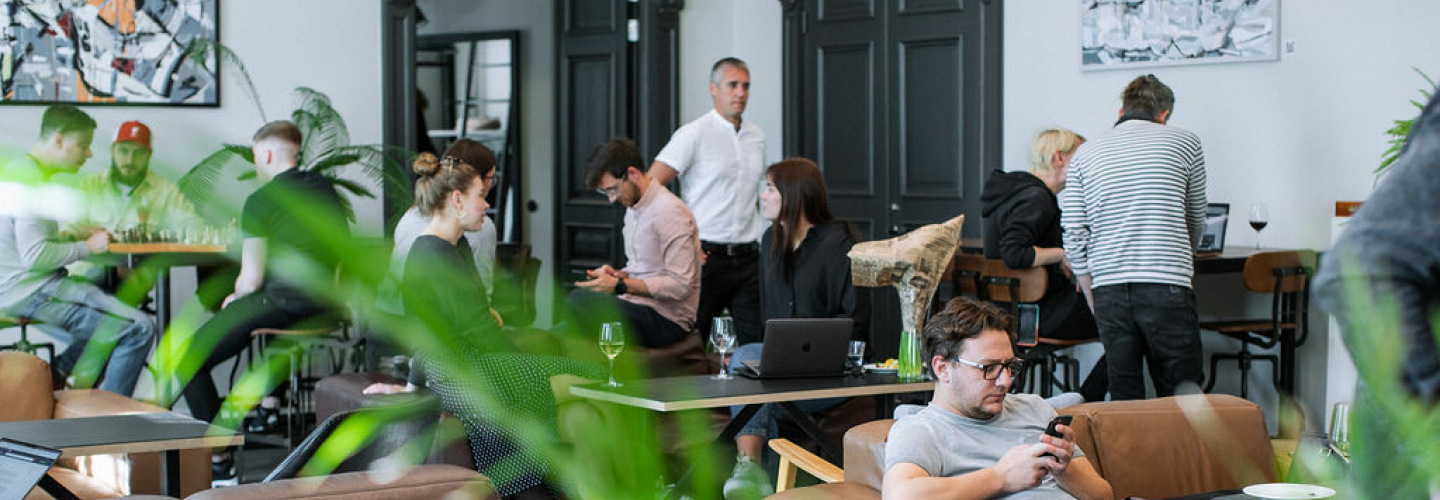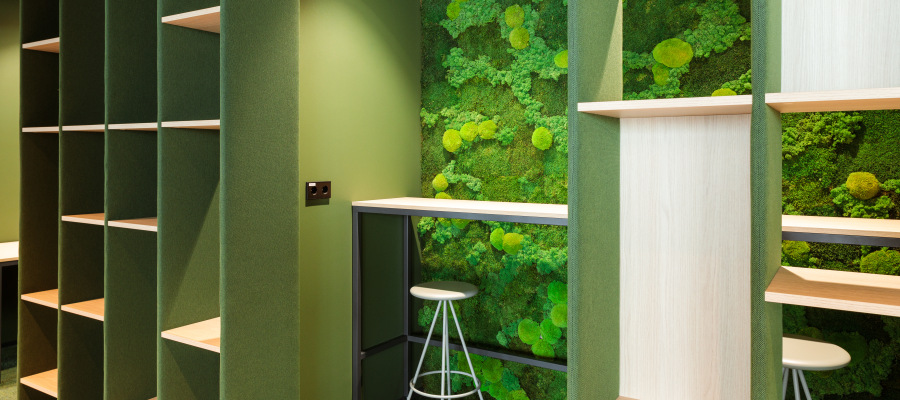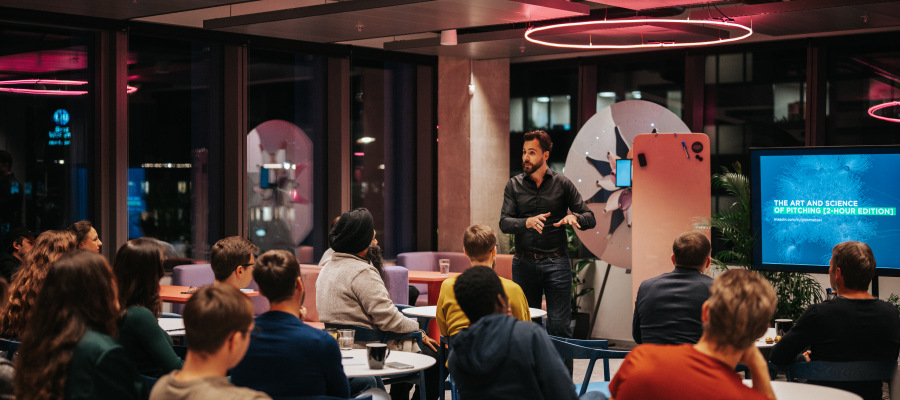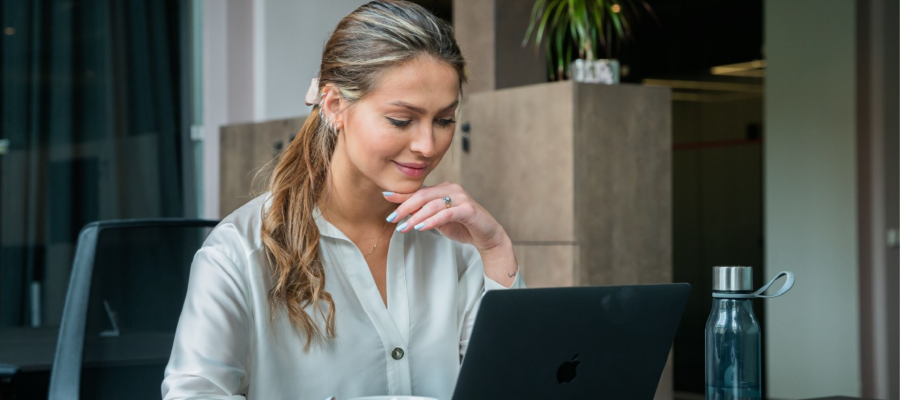Thinking and considering the environment at every step is becoming a norm. And it doesn’t only apply to households or people’s personal daily choices but also to companies and government actions. Having green labels and signs that prove that products have been created sustainably is not only an alternative but a “must be” approach in many industries already.
It also applies to office spaces. The past few years have given us the time and possibilities to consider what we need and expect from the office space. How important are the functional aspects? How comfortable and employee-friendly should the space be? And now, the environmental aspects have made a strong move and influenced tenants' decisions. A sustainable approach also plays a big part in the mind of (potential) team members when hiring - are you a conscious employer, who relates to the world and cares, and how exactly are you practising your values?
Working from a coworking space is already a smart and sustainable decision. Coworking centres work on a shared economy principle, so every business operating in the centre could benefit from the equipment available.
Unily’s 2020 Future of the Sustainable Workplace report shows that of the 2,000 office workers surveyed, 65% were more likely to work for a company with a strong environmental policy. This shows that sustainability is now playing a role in talent attraction and retention, so companies must increase their attention to sustainable practices.
Having an office that considers the sustainability and green aspects starts with the building - how has it been created, how is the natural light used, does it collect rainwater and so on. According to New York Times, one of the landmarks of the smart office building is Watershed, a seven-story office building in Seattle that was completed two years ago. The Watershed has a slanted roof that collects rainwater for use in toilets and a wide, welcoming entry staircase offering an alternative to the elevator. It also has self-tinting electrochromic window glazing to reduce solar heat gain through the floor-to-ceiling windows. It all has resulted in reduced operating costs from a reduction in total energy usage by at least 25% and a reduction in total water usage by 75% below Seattle’s baseline targets.

Every action has an impact
Besides the building itself, there are various aspects to consider - how to manage the heating and cooling systems, especially in today's energy crises, reduce excess water consumption, and create a culture where people are willing to act responsibly. It is a puzzle of many-many pieces.
Biophilic design is a sustainable working environment that supports well-being. TechRepublic advises bringing plants to the workplace to improve indoor air quality and bring nature into the office. Plants produce oxygen and make a cleaner, happier place for people to work. Biophilic design has proven to benefit our well-being and productivity by 20%.
One of the most troubling issues for many offices is the waste related to food delivery and packaging. “Last autumn, when restaurants and cafes were closed due to COVID restrictions and the weather turned cold and humid, more and more people started to order lunch at the office,” says Maigi Moor, Centre Coordinator of Workland. “Quite soon, it resulted in a flood of packing and paper bags as every person ordered the meal on their own, and it was delivered in a separate box and a bag. We have around 200 people working in the Workland Vabaduse office, for example, and if you think that about 40-50% of them order lunch with delivery, you can imagine the amount of waste it turns into. So for us, it was essential to find a solution to this. That is how we discovered RINGO return boxes for the reusable packages and decided to have them also in our coworking centres.”
RINGO is an Estonian startup solving the disposable packaging waste problem. You can order your food from the restaurant with RINGO reusable packaging, leave the package later in the return box, and receive the deposit. We expect it to become more popular when more restaurants join the RINGO network.

Moor added that having package return boxes in the coworking spaces is part of Workland’s ESG plan, which includes energy consumption and general principles of being as green as possible. “Working from a coworking space is already a smart and sustainable decision. Coworking centres work on a shared economy principle, so every business operating in the centre could benefit from the equipment available.” It means that a company does not have to have printers and coffee makers, or even furniture. Instead, the common areas – kitchens and meeting rooms – and other things needed in the office are shared with all the members, which is sustainable and cost-beneficial for businesses. This results in a smaller ecological footprint.
Being aware of the ecological impact of our work life brings many options to make greener decisions. It’s all about the tiny steps. Will you boil the water for your tea to 100 degrees, or is 80 enough? Do you need to have the lights on in the meeting rooms or kitchen when no one is there? Are you ready to order your food in reusable packaging? The list of questions is long. We only have one earth; therefore, we must make wiser decisions. So let’s start today, one step at a time!




